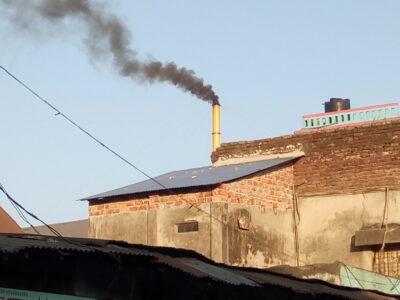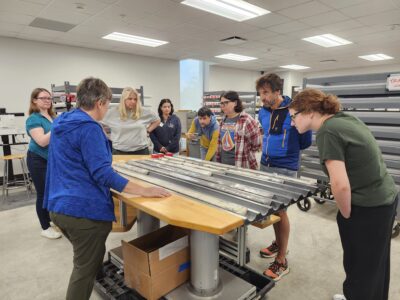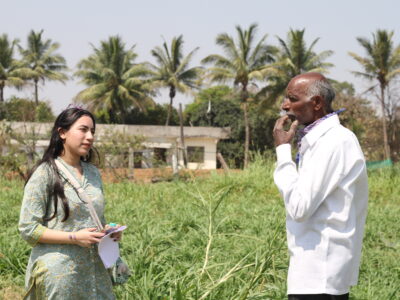The trans-boundary nature of environmental problems in the Middle East requires a joint, integrated approach to natural resource management. This summer, 10 Columbia University students will have the opportunity spend two weeks in Jordan and Israel, learning about how environmental issues span geographical boundaries; how political conflicts create, sustain and escalate these problems; and the role the environment can play in future negotiations toward constructive and peaceful outcomes. The program is the result of a collaborative effort between Columbia University’s Earth Institute and Middle East Research Center, and the Porter School of Environmental Studies at Tel Aviv University.
Columbia students will be joined by students from the Porter School of Environmental Studies — together they will develop ideas for shared plans to protect the environment in Jordan and Israel (with a lesser focus on Palestinian Territories) and to foster regional cooperation. Students will meet with guest lecturers and experts, including academic researchers, NGO representatives, governmental representatives, local officials and environmental activists.
Led by Beth Fisher-Yoshida, academic director of the Negotiation and Conflict Resolution program, this 2-week field expedition will explore:
1) Environmental issues in the Seam Zone between Israel and the Palestinian Authority and along the Jordanian-Israeli border;
2) How the regional conflict has affected the environment; and
3) The possible role which the environment can play as a peacemaking tool in future negotiations.
Program dates: May 23-June 9, with an orientation in NY on April 12th.
Itinerary:
Jordan: (Flight to Amman) Amman – Opening workshop; Ajloun Reserve – integrating biodiversity conservation with socio-economic projects and eco-tourism; The Dead Sea – development, conservation and cooperation; Mujib and Dana Biosphere Reserves; The Gulf of Aqaba – coastal ecosystems.
Israel: (Crossing the border to Israel through The Yitzhak Rabin Border Crossing) Eilat – environment and tourism; the Sinai border – fencing and refugees; The Arava – regional environmental cooperation and renewable energy; the Dead Sea – a trilateral (Israeli-Jordanian-Palestinian) shared resource; Jerusalem – political planning and cross-border environmental problems; Northern Israel – Israeli Arabs, the divided village of Barta’a; Nahraim – a planned Peace Park on the Israeli-Jordanian border; Tel-Aviv University – academic session on water issues in the Middle East (Return flight from Tel-Aviv).
Eligible candidates: Columbia University graduate students currently studying or interested in sustainability, climate change, conflict resolution, environmental science, policy and related subjects. Exceptional undergraduate juniors will also be considered.
Credit: This program is not for academic credit but students may enroll in an independent study and complete supplemental assignments to earn academic credit. For more information, email Natalie Unwin-Kuruneri (natalie@ei.columbia.edu).
Cost: $5,260**: Includes round-trip airfare, transport to multiple sites in Jordan and Israel, all accommodations and most meals. Students may use frequent flyer miles to reduce the program cost. Participants will have 2 free nights, in Tel Aviv and Amman, where they will need to pay for dinner. Students should expect to cover the costs of their visas for Israel and Jordan (if applicable) and travel insurance.
To Apply: Applications are due by March 15th at 11:59PM EST. Applications should be submitted online: http://fs12.formsite.com/cu-oarp/form16/index.html
**Fellowships are available through the Earth Institute based on financial need and merit. To be considered, students should indicate need on their application.
Natalie Unwin-Kuruneri is Associate Director of Education at the Earth Institute, Columbia University.




[…] program, will spend one week in each country as part of a new summer field study program: Regional Environmental Sustainability in the Middle East. The students are the first cohort of this program, which was developed by the Earth Institute, […]